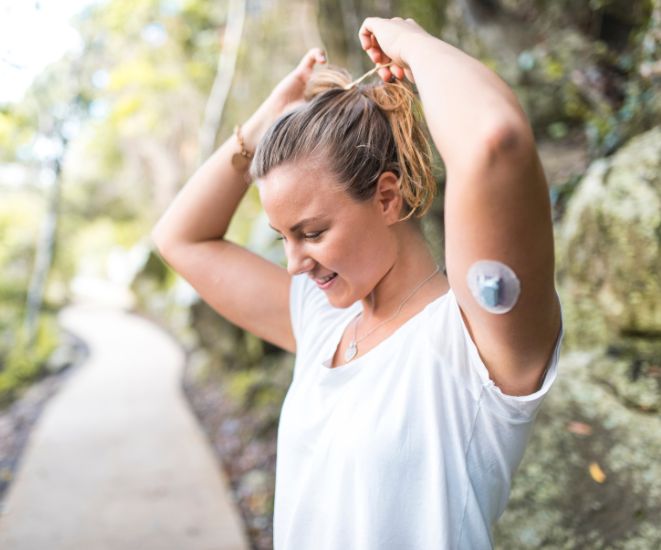How to Manage Diabetes Naturally
While medication may be necessary for many people with diabetes, natural options can significantly improve blood sugar control and overall health outcomes. From what you eat to how often you move, natural approaches like balanced nutrition, regular physical activity, stress reduction and quality sleep can play a critical role in controlling blood sugar levels and improving overall health. This article explores how to manage diabetes naturally, so keep reading for more information.
Understanding Blood Sugar Balance
The key to natural diabetes management lies in understanding how different foods and activities affect blood glucose levels. When you eat, your body breaks down carbohydrates into glucose, which enters your bloodstream. The goal is to maintain steady blood sugar levels throughout the day, avoiding dangerous spikes and crashes that can lead to complications.
Dietary Strategies for Blood Sugar Control
Choose Complex Carbohydrates Over Simple Sugars
The foundation of diabetic nutrition centers on selecting the right types of carbohydrates. Complex carbohydrates found in whole grains, legumes and vegetables provide sustained energy without causing rapid blood sugar spikes. These foods contain fiber, which slows glucose absorption and helps maintain steadier blood sugar levels.
Replace refined grains like white bread, white rice and pasta with whole grain alternatives such as quinoa, brown rice, oats and whole wheat products. These complex carbohydrates digest more slowly, preventing the sudden glucose surges that strain your body's insulin response.
Embrace Low-Glycemic Foods
The glycemic index measures how quickly foods raise blood sugar levels. Low-glycemic foods release glucose gradually, making them ideal for diabetes management. Excellent low-glycemic choices include leafy greens, broccoli, cauliflower, berries, apples, nuts, seeds and most non-starchy vegetables.
Incorporating these foods into every meal helps create a more balanced glucose response. For example, pairing a small portion of fruit with nuts or Greek yogurt can slow sugar absorption compared to eating fruit alone.
Prioritize Protein and Healthy Fats
Protein and healthy fats play crucial roles in blood sugar management. Protein helps stabilize glucose levels and promotes satiety, reducing the likelihood of overeating. Include lean sources like fish, poultry, eggs, tofu, legumes and low-fat dairy products in your meals.
Healthy fats from sources like avocados, olive oil, nuts, seeds and fatty fish provide essential nutrients while helping slow carbohydrate absorption. These fats also support heart health, which is particularly important for people with diabetes who face increased cardiovascular risks.
Practice Portion Control and Meal Timing
Managing portion sizes directly impacts blood sugar control. Using smaller plates, measuring servings and paying attention to hunger cues can prevent overeating. The plate method offers a simple approach: fill half your plate with non-starchy vegetables, one quarter with lean protein and one quarter with complex carbohydrates.
Eating regular, well-spaced meals helps maintain steady blood sugar throughout the day. Skipping meals can lead to dangerous blood sugar fluctuations, while eating too frequently may cause consistently elevated glucose levels.
Lifestyle Modifications for Natural Diabetes Control
Regular Physical Activity
Exercise serves as a powerful natural tool for diabetes management. Physical activity helps muscles use glucose for energy, naturally lowering blood sugar levels. Both aerobic exercise and resistance training offer benefits for people with diabetes.
Aim for at least 150 minutes of moderate-intensity aerobic activity weekly, such as brisk walking, swimming or cycling. Resistance training two to three times per week helps build muscle mass, which improves glucose metabolism. Even short walks after meals can significantly impact post-meal blood sugar levels.
Stress Management Techniques
Chronic stress elevates cortisol levels, which can raise blood sugar and make diabetes management more difficult. Implementing stress reduction techniques becomes essential for natural diabetes control.
Meditation, deep breathing exercises, yoga and regular relaxation practices can help lower stress hormones and improve blood sugar control. Finding healthy outlets for stress, whether through hobbies, social connections or professional counseling, supports overall diabetes management.
Quality Sleep Habits
Poor sleep quality and insufficient sleep duration can negatively impact blood sugar control. During sleep deprivation, your body produces more stress hormones and becomes less sensitive to insulin, making glucose management more challenging.
Establish consistent sleep schedules, create a restful bedroom environment and limit screen time before bed. Most adults need seven to nine hours of quality sleep nightly for optimal health and blood sugar control.
Stay Hydrated
Proper hydration supports kidney function and helps maintain stable blood sugar levels. Dehydration can lead to increased blood glucose concentrations, while adequate water intake helps the kidneys flush out excess glucose through urine.
Choose water as your primary beverage, avoiding sugary drinks that can cause blood sugar spikes. Herbal teas and sparkling water with natural flavoring provide variety without added sugars.
Natural Supplements and Herbs
Several natural supplements show promise for diabetes management, though they should complement, not replace, conventional treatment. Cinnamon may help improve insulin sensitivity, while chromium can enhance glucose metabolism. Alpha-lipoic acid, bitter melon and gymnema sylvestre have also shown potential benefits in research studies.
Always consult with healthcare providers before adding supplements to your routine, as they can interact with medications and may not be appropriate for everyone.
The information on this website is for general educational purposes only and is not a substitute for professional medical advice. Always consult your doctor or qualified healthcare provider before making changes to your health, diet or treatment plan.

